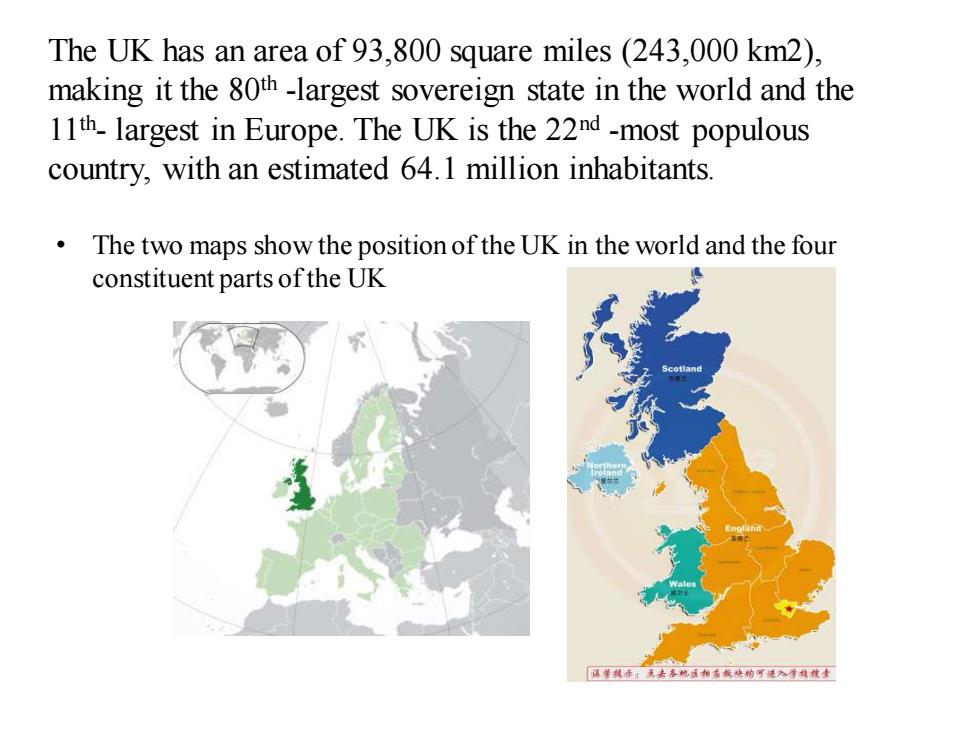
The UK has an area of 93,800 square miles(243,000 km2), making it the 80th-largest sovereign state in the world and the 11th-largest in Europe.The UK is the 22nd-most populous country,with an estimated 64.1 million inhabitants. The two maps show the position of the UK in the world and the four constituent parts of the UK 通举辑冻:支去春想屋和系病装物可速入等线雅幸
The UK has an area of 93,800 square miles (243,000 km2), making it the 80th -largest sovereign state in the world and the 11th - largest in Europe. The UK is the 22nd -most populous country, with an estimated 64.1 million inhabitants. • The two maps show the position of the UK in the world and the four constituent parts of the UK
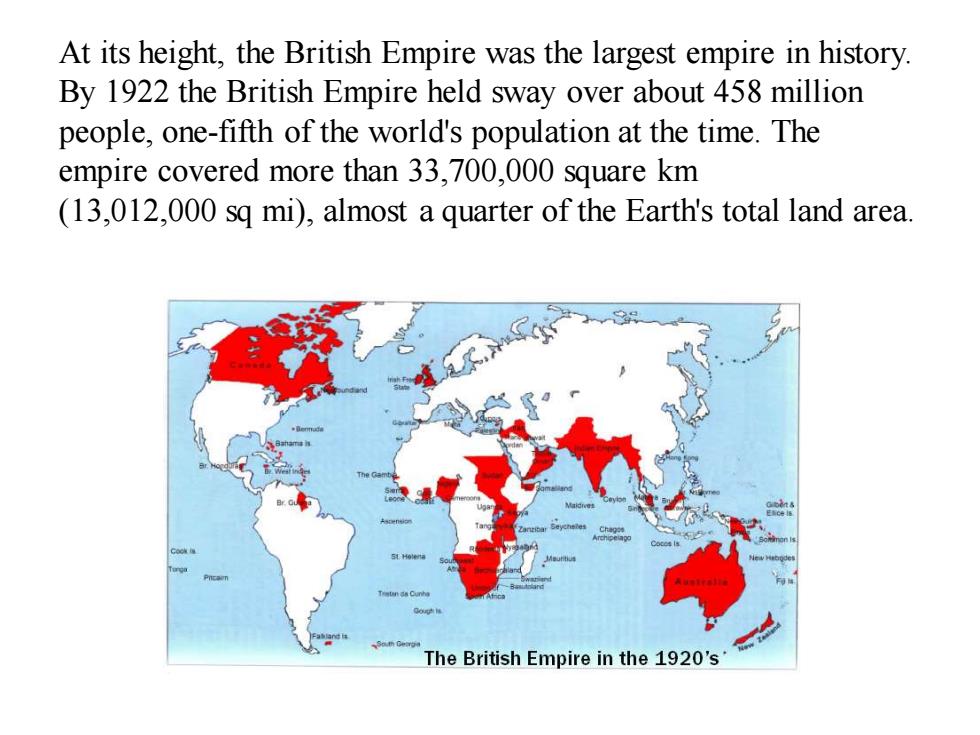
At its height,the British Empire was the largest empire in history. By 1922 the British Empire held sway over about 458 million people,one-fifth of the world's population at the time.The empire covered more than 33,700,000 square km (13,012,000 sq mi),almost a quarter of the Earth's total land area. The British Empire in the 1920's
At its height, the British Empire was the largest empire in history. By 1922 the British Empire held sway over about 458 million people, one-fifth of the world's population at the time. The empire covered more than 33,700,000 square km (13,012,000 sq mi), almost a quarter of the Earth's total land area
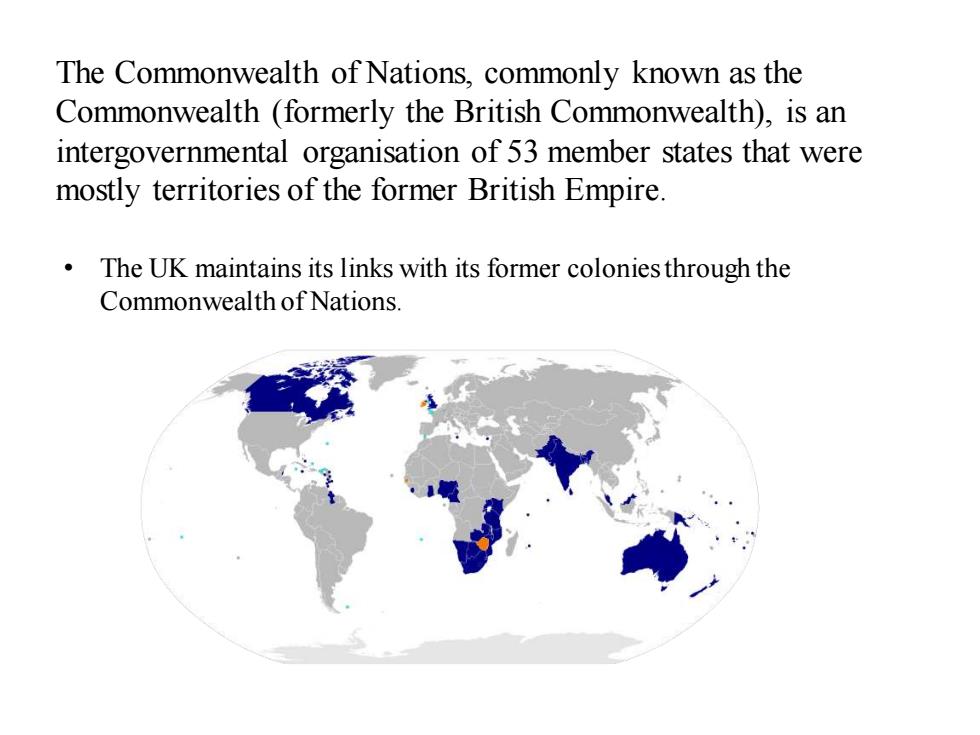
The Commonwealth of Nations,commonly known as the Commonwealth (formerly the British Commonwealth),is an intergovernmental organisation of 53 member states that were mostly territories of the former British Empire. The UK maintains its links with its former colonies through the Commonwealth of Nations
The Commonwealth of Nations, commonly known as the Commonwealth (formerly the British Commonwealth), is an intergovernmental organisation of 53 member states that were mostly territories of the former British Empire. • The UK maintains its links with its former colonies through the Commonwealth of Nations
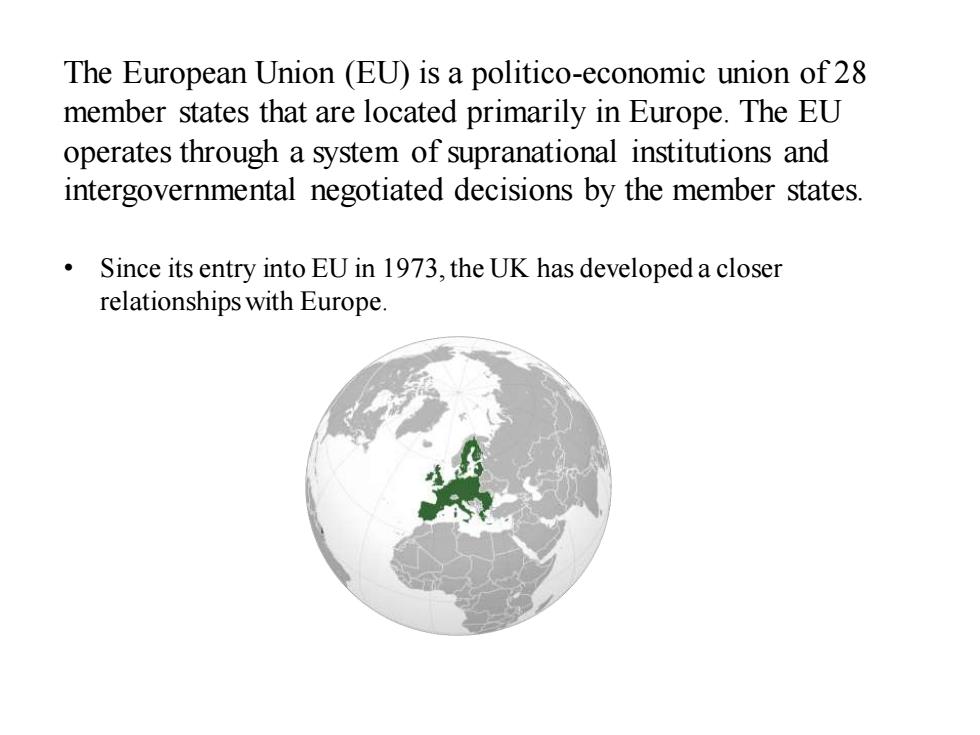
The European Union (EU)is a politico-economic union of 28 member states that are located primarily in Europe.The EU operates through a system of supranational institutions and intergovernmental negotiated decisions by the member states. 。 Since its entry into EU in 1973,the UK has developed a closer relationships with Europe
The European Union (EU) is a politico-economic union of 28 member states that are located primarily in Europe. The EU operates through a system of supranational institutions and intergovernmental negotiated decisions by the member states. • Since its entry into EU in 1973, the UK has developed a closer relationships with Europe
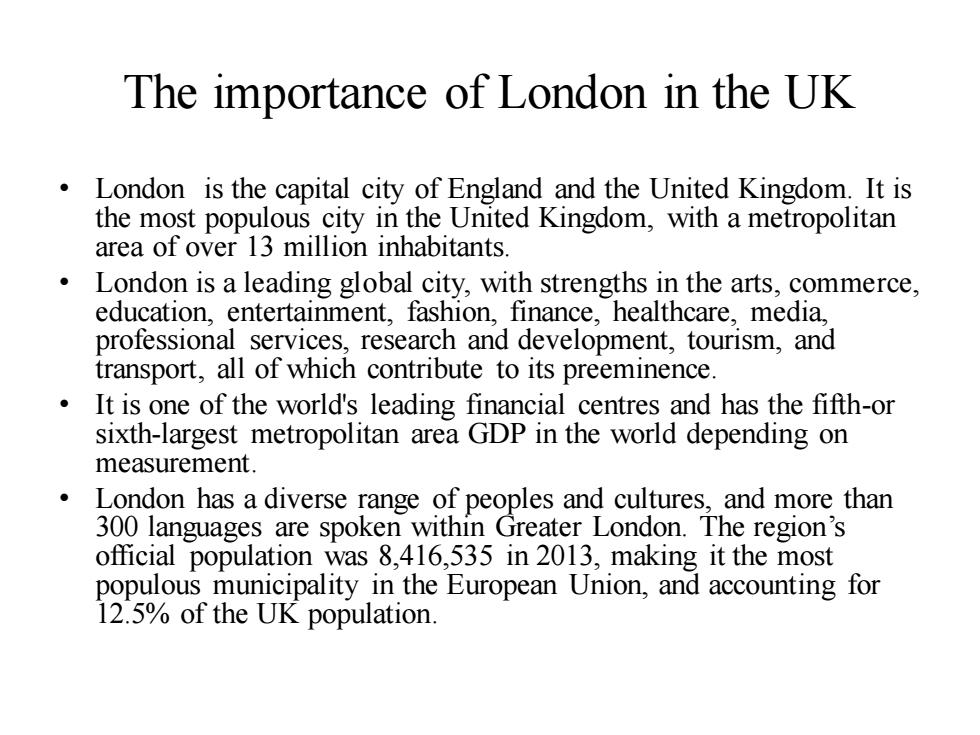
The importance of London in the UK London is the capital city of England and the United Kingdom.It is the most populous city in the United Kingdom,with a metropolitan area of over 13 million inhabitants. London is a leading global city,with strengths in the arts,commerce, education,entertainment,fashion,finance,healthcare,media, professional services,research and development,tourism,and transport,all of which contribute to its preeminence. It is one of the world's leading financial centres and has the fifth-or sixth-largest metropolitan area GDP in the world depending on measurement. London has a diverse range of peoples and cultures,and more than 300 languages are spoken within Greater London.The region's official population was 8,416,535 in 2013,making it the most populous municipality in the European Union,and accounting for 12.5%of the UK population
The importance of London in the UK • London is the capital city of England and the United Kingdom. It is the most populous city in the United Kingdom, with a metropolitan area of over 13 million inhabitants. • London is a leading global city, with strengths in the arts, commerce, education, entertainment, fashion, finance, healthcare, media, professional services, research and development, tourism, and transport, all of which contribute to its preeminence. • It is one of the world's leading financial centres and has the fifth-or sixth-largest metropolitan area GDP in the world depending on measurement. • London has a diverse range of peoples and cultures, and more than 300 languages are spoken within Greater London. The region’s official population was 8,416,535 in 2013, making it the most populous municipality in the European Union, and accounting for 12.5% of the UK population